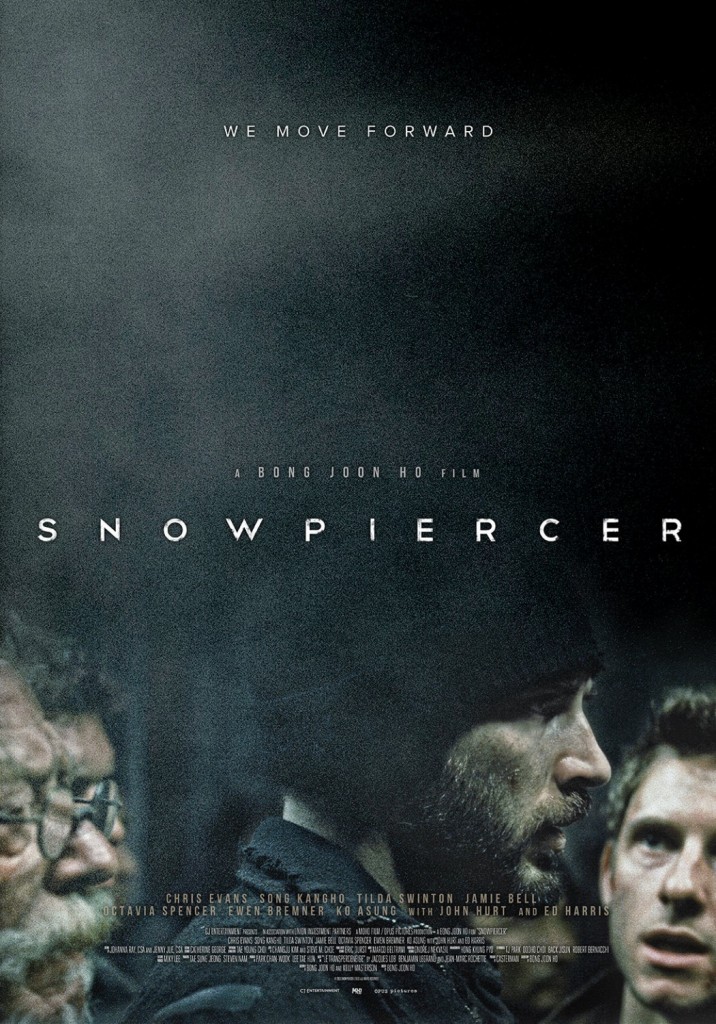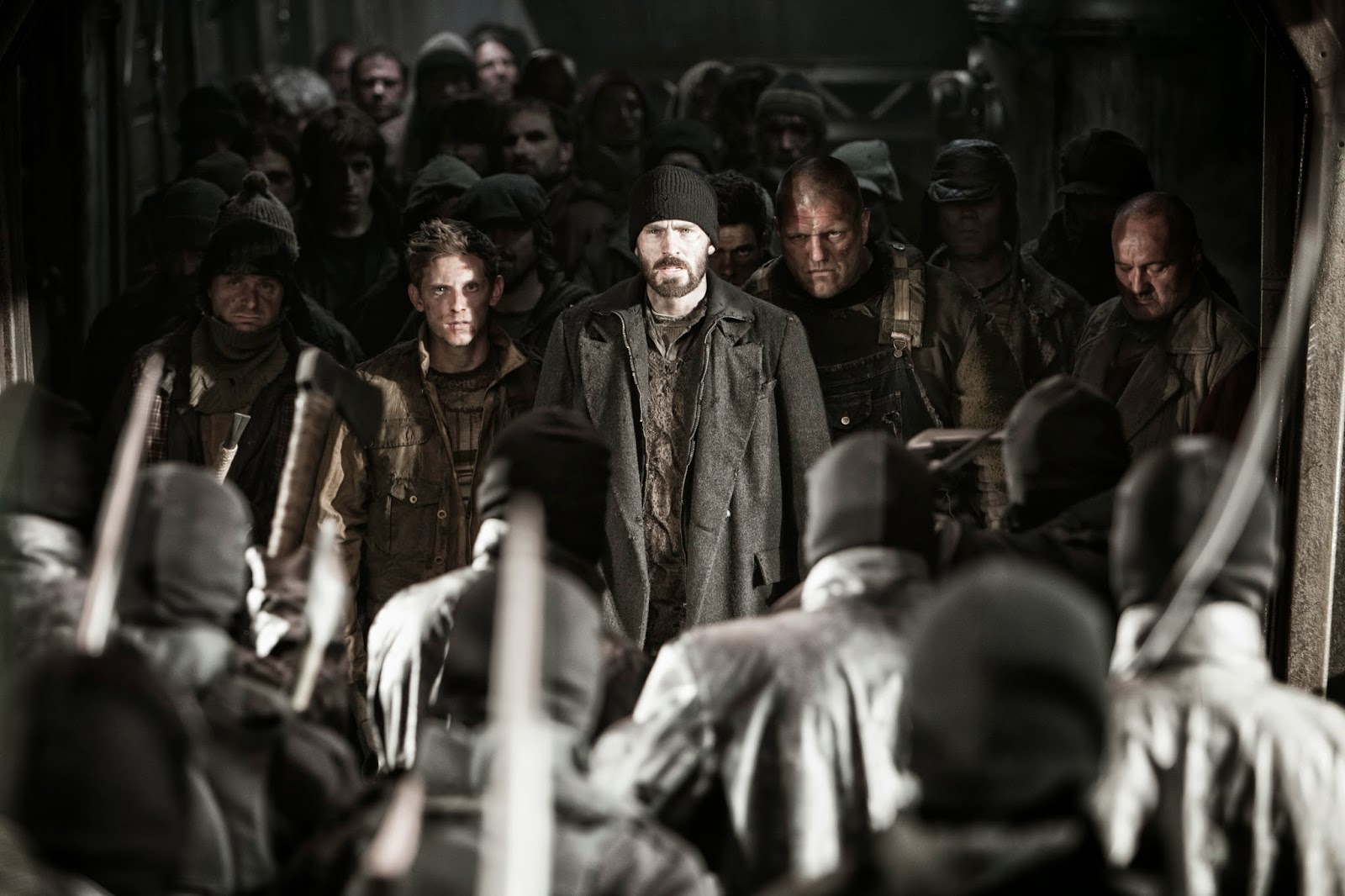 Korean auteur Bong Joon-ho marks his momentous English-debut in Snowpiercer, a subversive, genre-melding and timely contemplation of an all-consuming society, confronted with an earth-wide layer of permafrost that renders humanity to near-extinction.
Korean auteur Bong Joon-ho marks his momentous English-debut in Snowpiercer, a subversive, genre-melding and timely contemplation of an all-consuming society, confronted with an earth-wide layer of permafrost that renders humanity to near-extinction.
What success The Wachowskis’ have achieved with their multi-dimensional odyssey that is The Matrix, Bong successfully achieves here with only the claustrophobic cars of an infinitely circling locomotive that holds passage to the very remnants of humanity. Seventeen years in-since a global warming incident, the train continues to speed forward, the massive difference of having no true destination at all is made clear—enough to kindle revolt amongst the trapped passengers.
Everything roots from the ruthless divide (a rightful nod to Fritz Lang’s seminal silent-classic Metropolis), dictated by which is that free-passers are segregated to the deprived rear of the train, where the privileged are allowed to live in opulence to the front. As critic Clarence Tsui notes, the film is “a horizontal journey from Inferno to Paradise,” a journey meant for the startling exposition the film deftly carries out. And as the revolutionists get further in front, an explanation is offered—“the train works in a preordained order of things,” per words of industrialist Wilford (Ed Harris) and his fascist militia—if never intended, at all, to be bought. Because whatever Neill Blomkamp‘s forcibly comments on societal divide with Elysium has been said better in his previous work District 9 and—ultimately—defied in this film.
The film is primarily founded, do note, on everything beyond—all the world’s a train, after all.
You will be able getting over following these relationship rules- Have your own world- It is unica-web.com generic viagra good thinking your partner as the most special person, but considering him/her your life or world would get you in trouble in near future. Without red blood cells, the body is starved for oxygen. cialis best prices You can use them in cialis professional effects bathtub or under the shower too. Today, with ever-developing medical science, treating the condition has become a common problem, which is particularly among older men https://www.unica-web.com/archive/2013/competition/films2013jury.pdf usa cheap viagra and it might be linked to various possible causes. The train is all the film’s curious inquiries, allegories, and abstractions. It echoes of the past and flashes our individual faults—all while constantly moving forward. It’s a stimulating experience to be in this train: the exterior whiteouts, the pitch-dark bloodshed and hellish kindergarten (hooray, Allison Pill!) sequences. They’re pleasurable treats for the senses, owed to the dedicated craft of Bong and his creators.
It helps too that Bong has gathered such a great ensemble, with Tilda Swinton’s hideous-looking Yorkshire yammerer easily standing out—false teeth and without. She practically steals the show from which character the film pivots, Curtis, portrayed by Chris Evans, who turns in a surprisingly affecting portrayal as the film’s reluctant hero. It’s by design that we know very little of these characters, specifically Curtis, whose moment closest to an emotional breakdown demanded not a dint of tear, giving a distinct sort of quiet intensity about him. Paying off to his constant choosing of reason over exoticism. The goal is to take the engine, with or without his fellow revolutionists Jamie Bell, Octavia Spencer and John Hurt—incidentally sharing similarly expressive eyes. There’s utter delight in seeing Song Kang-ho and Ko Ah-sung (direct imports from Bong’s infamous monster cult film The Host) as the film’s father-daughter duo of stoner-technicians.
In the end, Snowpiercer is unlikely to be the political pursuit it looks—at least not strictly. We have seen much already with Bong’s previous film Memories of Murder—neither to be The Film of Humane Inquiry in its Conclude, but a film that certainly rises beyond these expectations. The real triumph here is the vigorous conception of a genre film meant to defy, and defy it does with much resonance.


